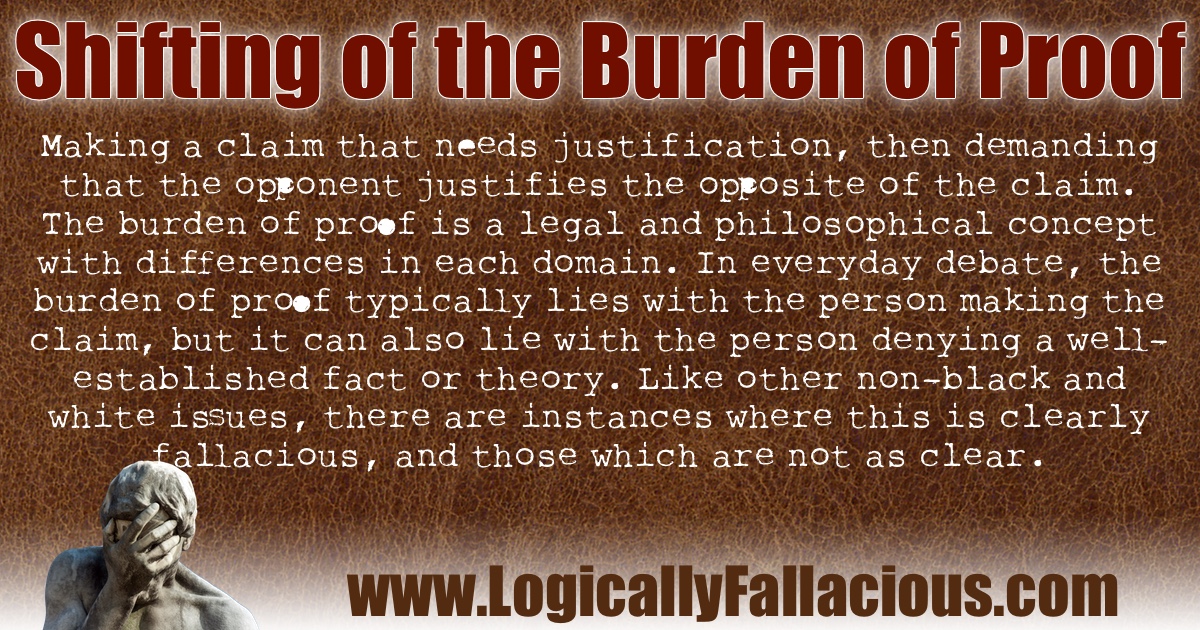Shifting of the Burden of Proof
onus probandi
(also known as: burden of proof [general concept], burden of proof fallacy, misplaced burden of proof, shifting the burden of proof)
Description: Making a claim that needs justification, then demanding that the opponent justifies the opposite of the claim. The burden of proof is a legal and philosophical concept with differences in each domain. In everyday debate, the burden of proof typically lies with the person making the claim, but it can also lie with the person denying a well-established fact or theory. Like other non-black and white issues, there are instances where this is clearly fallacious, and those which are not as clear.
Logical Form:
Person 1 is claiming Y, which requires justification.
Person 1 demands that person 2 justify the opposite of Y.
Person 2 refuses or is unable to comply.
Therefore, Y is true.
Example #1:
Jack: I have tiny, invisible unicorns living in my anus.
Nick: How do you figure?
Jack: Can you prove that I don't?
Nick: No.
Jack: Then I do.
Explanation: Jack made a claim that requires justification. Nick asked for the evidence, but Jack shifted the burden of proof to Nick. When Nick was unable to refute Jack's (unfalsifiable) claim, Jack claimed victory.
Example #2:
Audrey: I am a human being. I am not a cyborg from the future here to destroy humanity.
Fred: Prove that you are human! Cyborgs don't pass out when they lose a lot of blood. Here's a knife.
Audrey: Get to bed, Freddie. And no more SYFY channel before bed!
Explanation: Audrey is making a claim of common knowledge, perhaps sparked by Fred's suspicions. Fred is asking Audrey to prove the claim when he is the one that should be justifying his objection to the claim of common knowledge.
Exception: Again, the question of who has the burden of proof is not always as simple as demonstrated in these examples. Often, this is an argument itself.
Tip: If possible, justify your argument with evidence even if you might not have the burden of proof. The only time you might not want to do this is when it gives credibility to an outrageous accusation or claim.

References:
Bunnin, N., & Yu, J. (2008). The Blackwell Dictionary of Western Philosophy. John Wiley & Sons.
Questions about this fallacy? Ask our community!